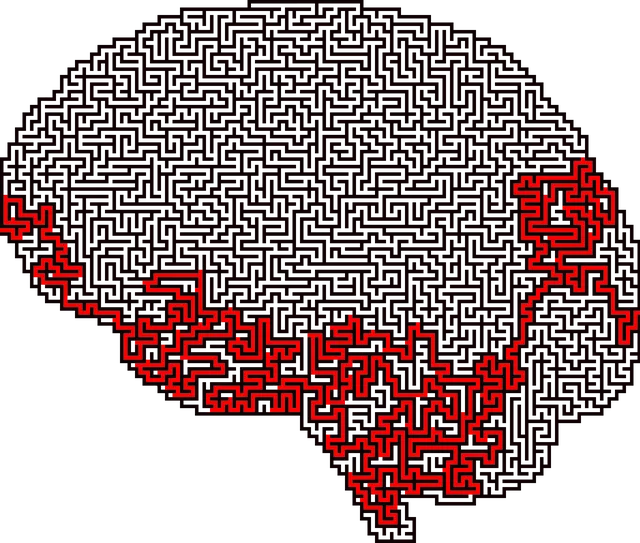Kaiser Permanente mental health Boulder employs a comprehensive crisis intervention strategy combining immediate response with long-term planning and community engagement. Their approach includes professional therapy, Social Skills Training for younger individuals, a Mental Wellness Podcast Series, and a Community Outreach Program that ensures vulnerable groups access necessary support services. By utilizing evidence-based methods like in-depth interviews, mental wellness journaling, and standardized assessment tools, they offer personalized guidance addressing symptoms and underlying distress factors. These strategies empower individuals to recognize distress, seek help promptly, and manage their well-being effectively, enhancing overall mental wellness.
In today’s fast-paced world, crisis intervention strategies are more crucial than ever. This comprehensive guide, inspired by the Kaiser Permanente Mental Health Boulder approach, explores effective ways to navigate and mitigate crises. We delve into understanding crisis intervention, identifying and assessing situations, and implementing powerful interventions. By mastering these techniques, we aim to foster support and accelerate recovery, leveraging the expertise of Kaiser Permanente Mental Health Boulder in mental health care excellence.
- Understanding Crisis Intervention: A Kaiser Permanente Mental Health Boulder Approach
- Identifying and Assessing Crisis Situations: Tools and Techniques
- Implementing Effective Interventions: Strategies for Support and Recovery
Understanding Crisis Intervention: A Kaiser Permanente Mental Health Boulder Approach

Crisis intervention strategies are essential components of mental health care, especially when addressing acute distress or traumatic events. At Kaiser Permanente Mental Health Boulder, a comprehensive approach is taken to ensure effective support during times of crisis. This involves not only immediate response but also long-term planning and community engagement. Their strategy includes a multi-faceted model that combines professional therapy with practical resources.
The Kaiser Permanente Mental Health Boulder team recognizes the importance of Social Skills Training in equipping individuals with coping mechanisms, especially for younger populations. They also leverage the power of technology through their Mental Wellness Podcast Series Production, providing accessible mental health content to a wide audience. Additionally, the Community Outreach Program Implementation plays a vital role in connecting vulnerable groups with necessary support services, fostering a sense of community resilience.
Identifying and Assessing Crisis Situations: Tools and Techniques

Identifying and assessing crisis situations is a critical first step for any intervention strategy. Professionals at Kaiser Permanente mental health Boulder utilize a range of tools to accurately recognize signs of distress, be it acute or chronic. This includes in-depth interviews that encourage open communication, allowing individuals to express their feelings and concerns freely. Mental wellness journaling exercise guidance can be incorporated as a technique to help individuals process and reflect on their emotions, providing valuable insights for assessment. Additionally, trained practitioners employ standardized assessment tools tailored to various populations and crises, ensuring comprehensive evaluations.
Beyond these methods, social skills training plays a pivotal role in crisis intervention by equipping individuals with coping mechanisms and communication strategies. Community outreach program implementation is another powerful tool, fostering connections and support networks that can mitigate the impact of crises. By combining these approaches, Kaiser Permanente mental health Boulder offers tailored guidance, addressing not just symptoms but also underlying factors contributing to distress, thereby enhancing overall mental wellness.
Implementing Effective Interventions: Strategies for Support and Recovery

Implementing effective crisis intervention strategies is paramount in supporting individuals facing mental health challenges, especially in communities like Boulder where access to quality care is a priority for organizations such as Kaiser Permanente. A multi-faceted approach can significantly enhance recovery outcomes. One key strategy involves integrating community outreach programs that provide early intervention and prevention services. By bringing mental health resources directly into communities, these programs empower individuals with knowledge and skills to recognize signs of distress, seek help promptly, and manage their well-being effectively.
Additionally, focusing on depression prevention and trauma support services can break down barriers to care. Tailored interventions aimed at high-risk populations, educational workshops, and accessible treatment options can reduce the impact of mental health crises. The Community Outreach Program Implementation by Kaiser Permanente Boulder exemplifies this commitment, aiming to foster a supportive environment where individuals take an active role in their recovery journey while receiving the necessary guidance and resources for long-term well-being.
In light of the above discussions, crisis intervention strategies guided by Kaiser Permanente Mental Health Boulder’s approach prove invaluable in navigating distressing situations. By understanding crisis interventions, identifying and assessing crisis situations effectively, and implementing proven strategies, we can foster support and recovery for those in need. Adopting these techniques not only enhances our ability to help individuals during crises but also contributes to building a more resilient and supportive community, reflecting Kaiser Permanente Mental Health Boulder’s commitment to holistic mental health care.






